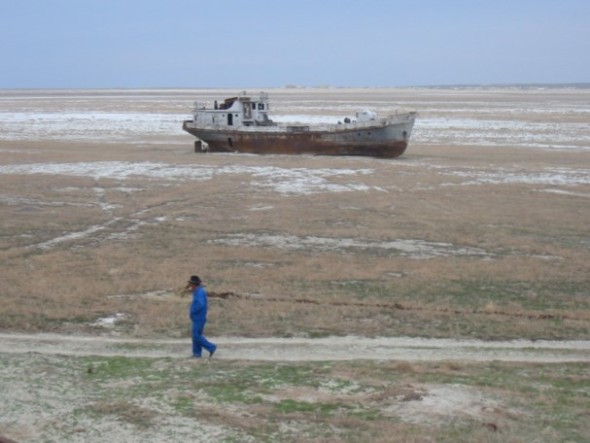
Photo: P. Christopher Staecker
By Jenny Howell, CCCS –
It is interesting to see the different strategies we all take to cope with the news stories of more and more struggling people worldwide in increasingly desperate situations. Some of us switch off, don’t listen to the news, and pretend it isn’t happening, or at least has nothing to do with us. Others rush to help—either in person or by fundraising for the latest disaster.
Then there’s most of the rest of us, somewhere in the middle of the bell curve. We send off our modest donations to the Red Cross, sign petitions, feel terrible and helpless about what others are going through, are thankful it isn’t us or our family, and then carry on with our comfortable, safe lives. After reading a comment on a news site mocking Obama for linking “everything to climate change including the Syrian refugee crisis,” and given the wildfires around Fort MacMurray and the world attention on the Paris climate summit last year, the timing seems right for an article on the story of how climate change and water scarcity are weaved into present and coming human migrations and conflicts.
So first, to look at Syria’s situation more closely. While it is more complicated than blaming everything on climate change, water scarcity added to an already volatile situation. For four years before Syria’s civil war, there was a drought, affecting 1.3 million people (at the time, the population was about 22 million; now it is down to 16 million). This led to crop failures and a loss of 85 per cent of livestock in some areas. The drought further exacerbated the ongoing issue of Turkey’s 40-year dam and hydro-power construction projects, which have reduced water flows into Syria by 40 per cent (and also interestingly by 80 per cent to Iraq). Villagers were forced to leave their homes and headed to cities, increasing tensions and unemployment among young men and adding to already difficult situations there.
The rest is playing out in the news daily: continual conflict driving people from their homes, taking unimaginable risks with babies, elderly, and disabled family members towards an unknown and precarious future. Then to the receiving side. Poorer European countries faced with shores full of exhausted refugees, starting off sympathetic and (mostly) willing to help. Now more than overwhelmed, the tone is changing; dying refugee children no longer elicit as much sympathy, while compassion fatigue firmly settles in. Politics have begun to polarize as areas of resentment and anger against immigrants begins to set in, allowing far right politicians to rise in Europe (and elsewhere) and increasing the potential for more conflict as the cycle of blame continues.
Water is inevitably going to affect the geopolitical landscape, even more than it currently does, in the future. The direct implications of droughts and floods are easy to understand as when land fails to produce, and people get hungry and thirsty and have to move somewhere else, often where they may not be welcomed by the current occupants.
Closer to home, here in North America, the Ogalalla aquifer that supplies large areas of eight American states only recharges at 10 per cent the rate it is being withdrawn from. The water that filled it came from the last glaciation and once it has gone, it’s gone. We’ve heard the stories of severe drought in Southern California—the Los Angeles basin has enough water to support a population of two million. It is currently home to 20 million people (for context, the population of all of Canada is only 35 million).
Then there is the rise in sea levels that will have huge impacts on which cities remain liveable—440 American cities apparently will be underwater by 2100 if we don’t seriously cut carbon emissions. Consider also that 40 per cent of the world’s population lives within 100 km of the ocean. Where will these people go when their aquifers, rivers, and lands are contaminated with salt water from the approaching ocean? What stories will we be watching on the news then?
So Obama and many other informed and educated academics are likely right to point out that climate change has contributed to the Syrian crisis. The point is that weather patterns are changing worldwide and affecting populations and ecosystems everywhere, not only distant people in the news. Here in Canada, climate change has contributed to the pine beetle epidemic, lower snow packs and water shortages, stressed salmon in warmer rivers, increasing rates of forest fires, and increased flooding. In human terms this affects people’s homes and livelihoods.
So maybe it is time to stop quibbling about whether one event or another is caused by climate change, but instead recognize that these events with real human impacts are undisputedly increasing in number worldwide. We are now in the situation of lurching from crisis to crisis. This will only continue to get worse without tackling climate change issues head on, which is imperative if we want to improve our chances for any kind of future geopolitical stability.
For more information on Water Wise or Waste Wise and any of our school and community programs, contact the Cariboo-Chilcotin Conservation Society at [email protected] or visit the website at www.cconserv.org.

